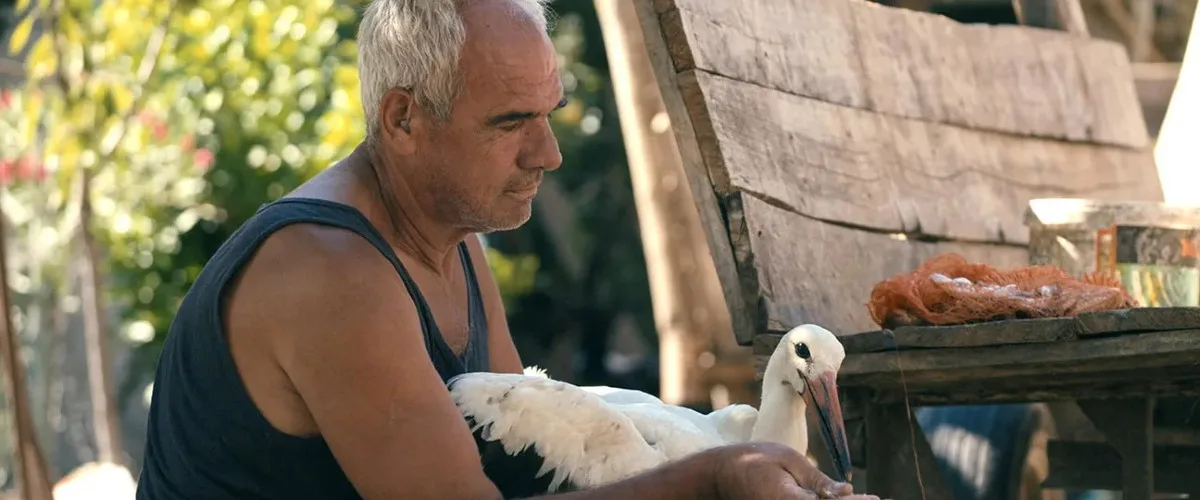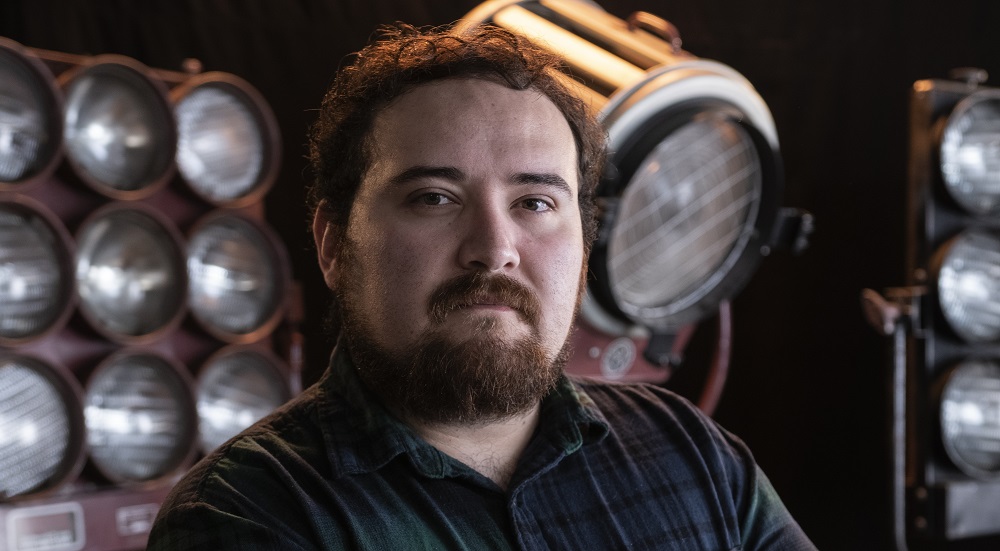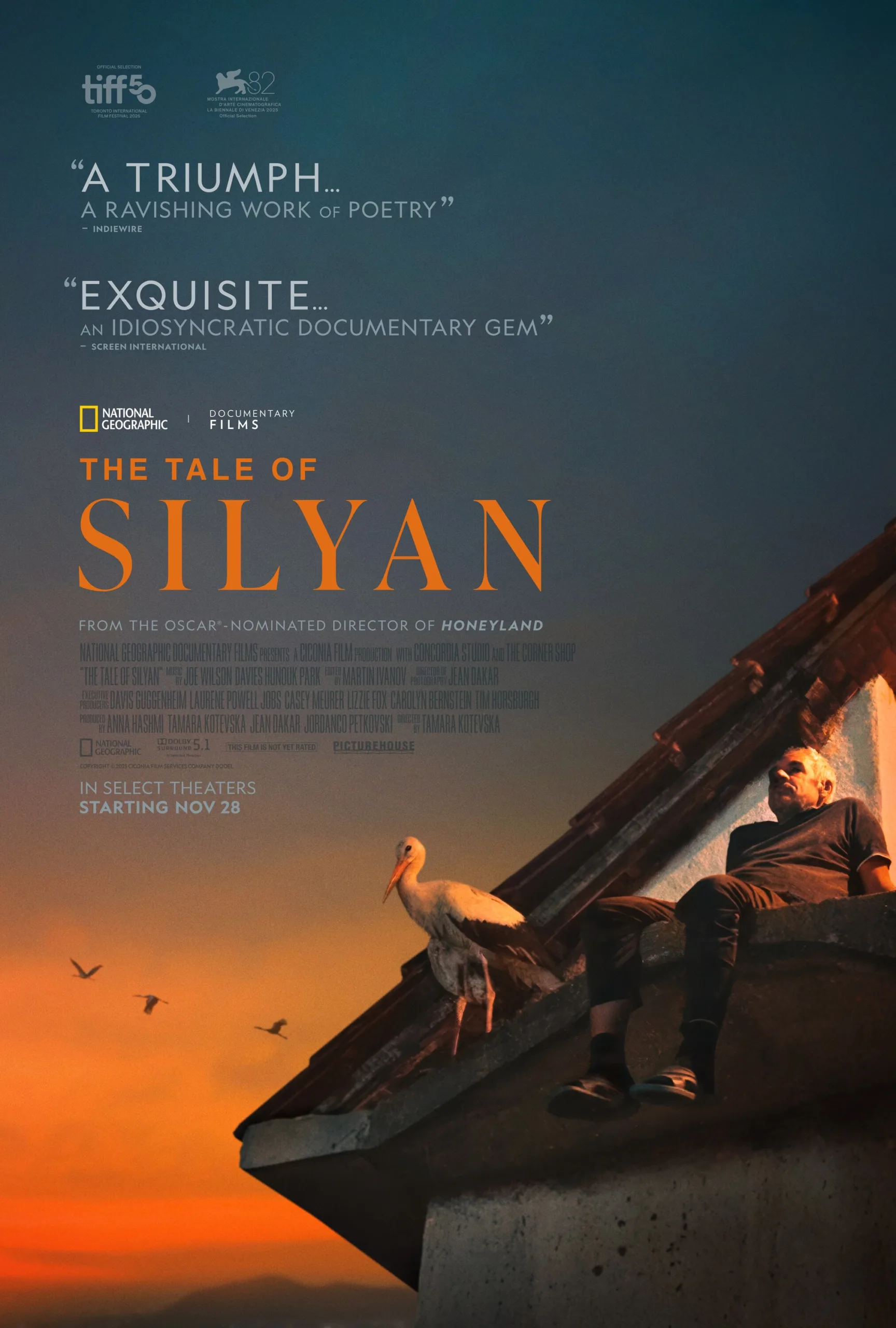Flaunting their wind-commanding wings, the white storks that soar the skies of Češinovo, the village in North Macedonia with the highest concentration of this species, appear seamlessly integrated into the lives of the few families who still live there. Their intertwined destinies are the subject of “The Tale of Silyan,” Oscar-nominated director Tamara Kotevska’s (“Honeyland”) succinct, entrancing, and life-affirming documentary.
The contemporary plight of Nikola, a struggling farmer who adopts an injured stork, is underscored by a narration recounting a 17th-century legend about a young man cursed by his father for his intent to leave their village. Unseen forces transform the son into a stork and condemn him to never reconcile with the hurt parent. As the storks do seasonally, many local humans have migrated to Western Europe for better employment opportunities, as farming has become devalued. Nikola’s son is one of those who left never to return, much to his heartbreak. The parallels between him and the folktale prove overt.
Alongside his wife, Jana, their daughter, and son-in-law, Nikola works the land, growing crops to sell at wholesale markets, but without anyone to buy them, tons of the fruit and vegetables go to waste—all the area’s farmers protest to no avail. Economical in its construction, “The Tale of Silyan” is as lean narratively as the legs of its central feathered creatures. Kotevska only includes essential scenes that concretely guide us through what’s happening in Nikola’s troubled existence.
From a scene where his daughter and son-in-law contemplate moving to Germany, editor Martin Ivanov cuts to a shot of a plane, a giant metal bird taking flight, then soon after to a video call between the geographically divided family where their daughter asks Jana to move with them to care for her granddaughter. Ivanov and Kotevska strut through both minor and significant transitions with no hesitation, trusting that the concise context in each scene is sufficient. Unburdened by belabored events, they create space for candid moments, like a hilarious visit to the nearest veterinary clinic or the jovial exchanges between Nikola and his buddies, who serve as a de facto support system for one another.
Kotevska, whose previous doc “Honeyland” followed a devoted beekeeper, has an affinity for documenting vanishing ways of life. In Nikola, she finds an improbably charming protagonist. While rugged in appearance—his skin seared by 45 years working under the sun—Nikola retains a certain childlike playfulness that shines in the company of other men whose families have left town for greener pastures. Alone and unable to make a living farming, he gets a job working at a landfill and puts his land up for sale. It’s there that some of the most horrifying images in “The Tale of Silyan” materialize. Storks roam the piles of garbage in search of food, but often end up dead in the same place. Their majestic bodies reduced to rotting trash. And what does that say about the aging men now forced to toil there? Once they have fulfilled the product of their labor, they move around trash to survive. Amid the disarray, Nikola finds an injured stork and brings it home, more like a pal than a pet.
Kotevska deploys the striking shots of storks flying or hunting for food, captured by cinematographer Jean Dakar, with a measured hand to avoid stepping into nature doc territory. Their presence instead takes on a more otherworldly quality, almost as impartial observers. The sound of their clicking beaks echoes throughout town, as if it were an ancient calling still beckoning today. Nikola’s relationship with the stork never crosses into questionable anthropomorphizing (unlike the atrociously contrived and saccharin “connection” in the bafflingly bad “My Octopus Teacher”). Though never verbalized, it’s understood that in caring for this animal in need, not only is he soothing his loneliness but vicariously mending the father-son schism that pains him—at least unilaterally for now.
In an unpredictable, yet welcomed twist, the film ends on a hopeful note—a rarity among issue-centric docs. “The Tale of Silyan” functions as a dialect between old-world wisdom and modern socioeconomic realities, between the natural realm and the worries of mankind; it’s both spiritual and humanist, about forgiveness and adaptability, and makes a case for holding on to what you’ve always known to fend off the illusion of progress. If the storks keep flying back home, maybe someday Nikola’s estranged son will too.




















